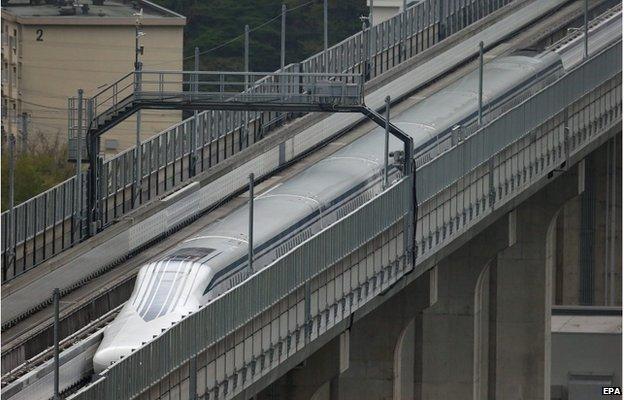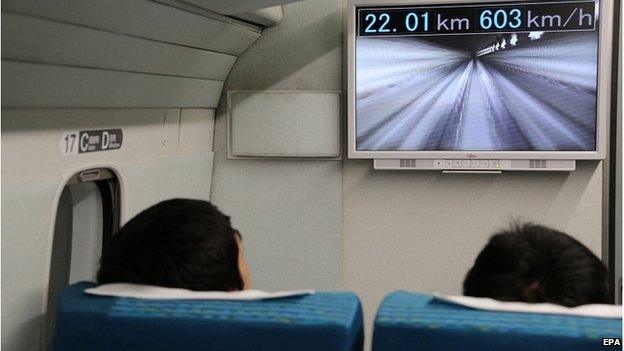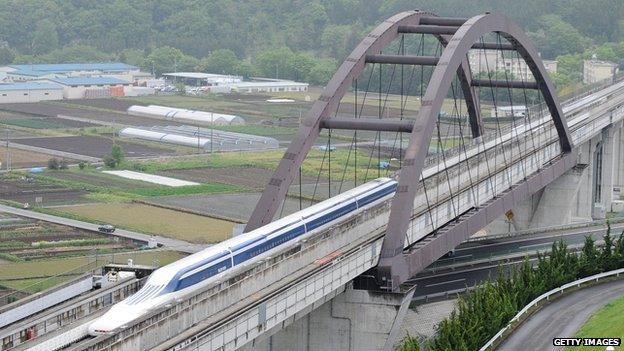Japan maglev train breaks world speed record again
- Published
A display on the train showed it reach 603 km an hour
A Japanese magnetic levitation train has broken its own world speed record, hitting 603km/h (374mph) in a test run near Mount Fuji.
The train beat the 590km/h speed it had set last week in another test.
Maglev trains use electrically charged magnets to lift and move carriages above the rail tracks.
Central Japan Railway (JR Central), which owns the trains, wants to introduce the service between Tokyo and the central city of Nagoya by 2027.
The 280km journey would take only about 40 minutes, less than half the current time.
However, passengers will not get to experience the maglev's record-breaking speeds because the company said its trains will operate at a maximum of 505km/h. In comparison, the fastest operating speed of a Japanese shinkansen, or "bullet train" is is 320km/h.


The test run was conducted on an experimental track in Yamanashi prefecture in central Japan
Construction costs are estimated at nearly $100bn (£67bn) just for the stretch to Nagoya, with more than 80% of the route expected to go through costly tunnels, AFP news agency reports.
By 2045, maglev trains are expected to link Tokyo and Osaka in just one hour, slashing the journey time in half.
About 200 train enthusiasts gathered along the route to witness Tuesday's test run. "It gave me chills. I really want to ride on the train... It's like I witnessed a new page in history," one woman told public broadcaster NHK.
"The faster the train runs, the more stable it becomes - I think the quality of the train ride has improved," said JR Central's head of research Yasukazu Endo.

The train uses electrically charged magnets to lift and move carriages above the rail tracks

Japan's magnetic levitation train first set a 581km/h world record back in 2003
Japan is known for its shinkansen that run on steel rails, but has been investing in maglev technology which it is hoping to sell overseas.
Japanese Prime Minister Shinzo Abe is visiting the US on Sunday where he is expected to pitch for a role in building a new high-speed rail line between New York and Washington.